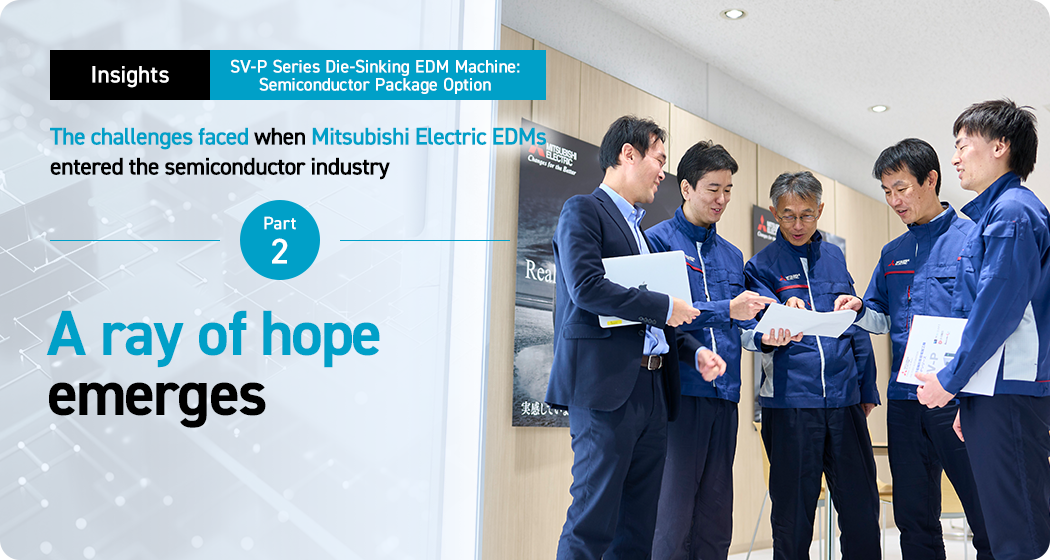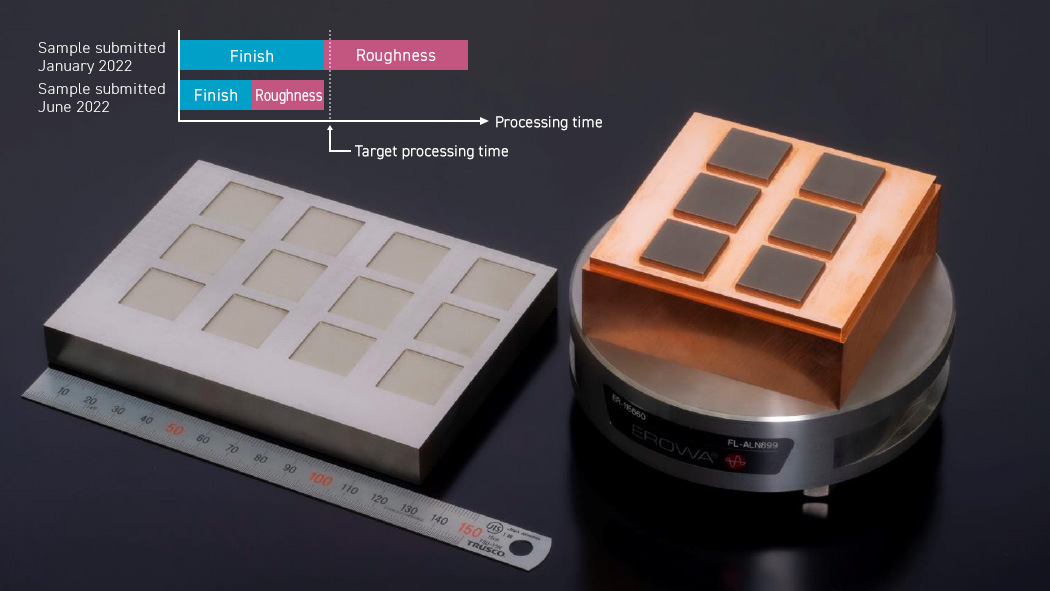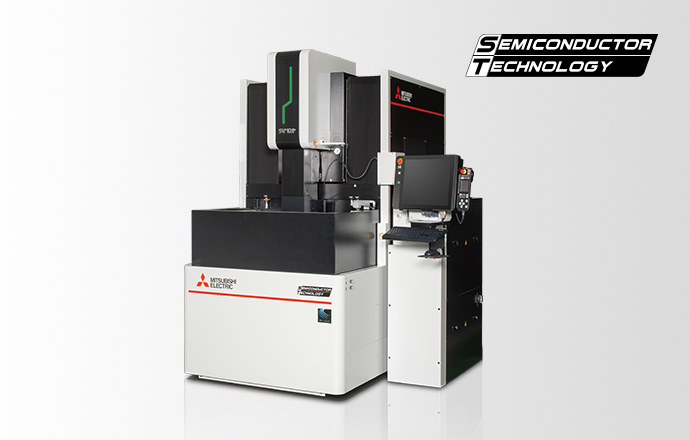An opportunity came sooner than expected. In July 2021, Mitsubishi Electric had a technical roundtable meeting with CAPABLE Corporation, a fabless manufacturer of semiconductor encapsulation molds. These “Technology Roundtables” are considered forums for collaboration, where Mitsubishi Electric and customers bring together cutting-edge technologies to explore new possibilities for collaboration.
Established in 2012 as a spin-out of executives and engineers from a major semiconductor equipment manufacturer, CAPABLE designs encapsulation molds used in semiconductor production. A key feature is that as a fabless manufacturer, CAPABLE does not have its own manufacturing facilities but instead outsources the manufacture of the molds it designs. With several Japanese manufacturers as partners, the company’s business model is to design molds to be produced by partners and supplied to semiconductor production companies.
CAPABLE is a fabless manufacturer, established with the aim of revitalizing Japan’s mold industry. Mold production is outsourced to Japanese mold makers, and products are supplied to major international manufacturers of semiconductors, LEDs, and electronics under the CAPABLE brand. CAPABLE is the first company in Japan to use this business model.
CAPABLE Corporation : http://capableeng.com/en/index.html
The company, which outsources mold fabrication to multiple manufacturers, has a strong influence over the selection of processing machines used by its subcontractors, which made any roundtable technical discussion with CAPABLE, a great opportunity. Hikosaka explained that he was developing a die-sinking EDM machine to produce semiconductor molds, however, the CAPABLE representatives shared their opinion that:
“In the field of semiconductor encapsulation mold manufacturing, Mitsubishi Electric’s EDM machines are at the lowest end of the scale.”
Hikosaka was speechless. He knew the sales results were very low, but was their reputation really that bad? A few days later, he visited CAPABLE with an encapsulation mold processed using the EDM machine from the earlier trial. He thought it was reasonably well made, but it was rejected immediately by the CAPABLE team. They identified that there were visible inconsistencies in the roughness, so there was no point in even measuring it.
Hikosaka was disappointed by this evaluation, but he knew that if they gave up now all their work would have been for nothing. Mitsubishi Electric’s EDM machines might never have another chance to get into the ever-expanding semiconductor market.
“You don’t know how much you can do until you try.
Let’s give it our best shot.”
Hikosaka went to Mitsubishi Electric’s policy meeting, where development decisions are made, and proposed creating a die-sinking EDM for the semiconductor market. The proposal was approved by the company executives. At the same time, Sasaki began working on the conditions for a new sample to re-propose to CAPABLE at the next opportunity.






